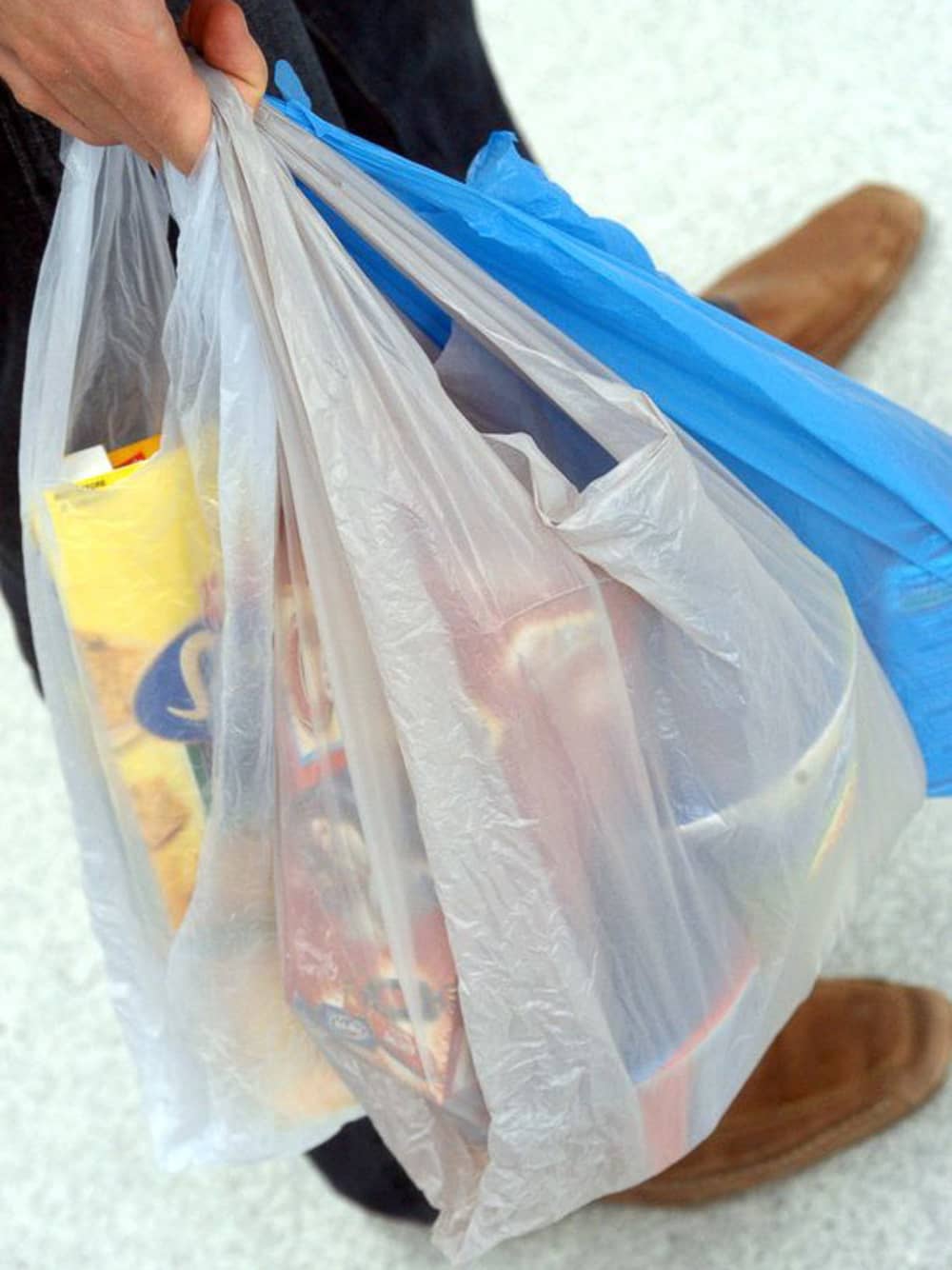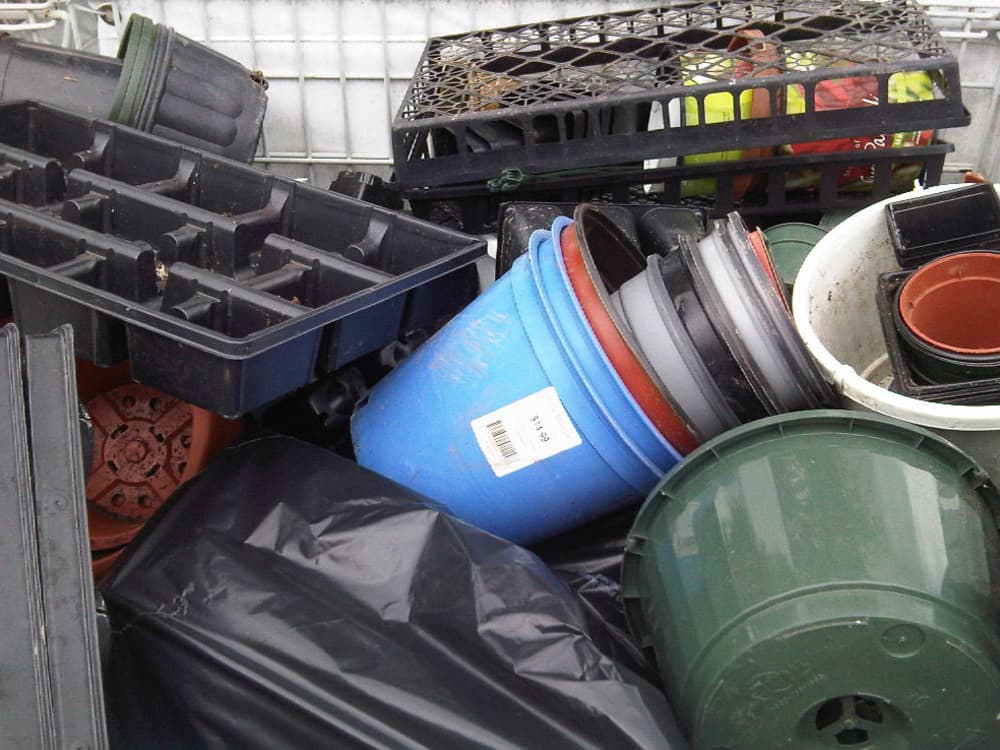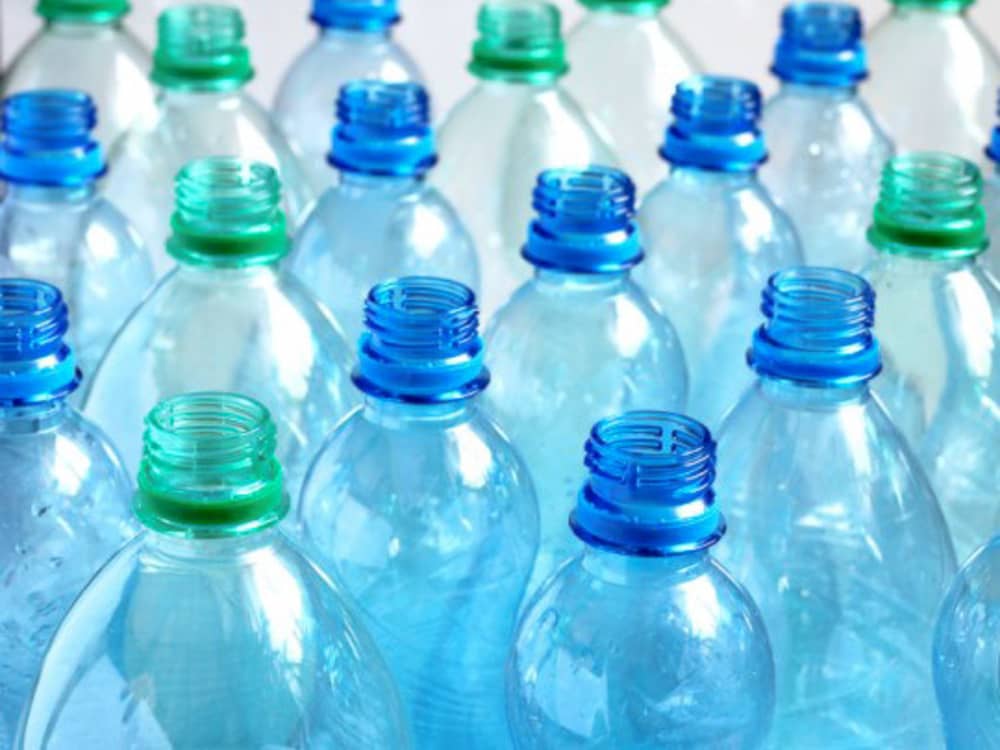The Rabid Recycler
Help save the world — one plastic bag at a time
 A number of large supermarkets have bins to recycle plastic shopping bags, drycleaning bags and packaging.Photo by Giulio Saggan/ABC News
A number of large supermarkets have bins to recycle plastic shopping bags, drycleaning bags and packaging.Photo by Giulio Saggan/ABC News The Houston Arboretum has a place to recycle all plastic flower pots and trays.Drive in at any time and toss your garden leftovers into the bin in thenortheast corner of the parking lot.
The Houston Arboretum has a place to recycle all plastic flower pots and trays.Drive in at any time and toss your garden leftovers into the bin in thenortheast corner of the parking lot. Plastic bottles make up about 11 percent of the contents of landfills.Courtesy photo
Plastic bottles make up about 11 percent of the contents of landfills.Courtesy photo
Editors Note: In this periodic column, rabid recycler Debbie Markey offers tips on how to get into the recycling habit.
Everyone is beginning to realize why recycling is important, but many people can’t be bothered to recycle. So, as an avid recycler and executive director of the Houston Arboretum & Nature Center, I have decided to spread the word about how to reduce your waste.
Recently in my neighborhood, the Woodland Heights, I was surprised to find out that we are in danger of losing our curbside recycling because only 25% of us bother to recycle.
I was stunned.
If given the opportunity to recycle, why wouldn’t everybody do it?
It occurred to me that perhaps the reason that recycling is low in our city – and my neighborhood — is because there is almost no recycling education. So in this column, I'm out to change that.
Left to our own devices, we have been destroying our habitat. Forests are disappearing with increasing speed; rivers and lakes are becoming more and more polluted. Landfills are encroaching upon our neighborhoods. Recycling is a simple, easy way to help us use less of these resources. One way to start: Think plastic.
Gardener alert: Recycle those plastic flower pots and trays
From corporations, to small businesses, schools and homes, everyone can do his or her part to recycle. For example, the Arboretum has been working with Waste Management for the past three years to provide Houstonians with a place to recycle all plastic flower pots and trays. You can drive in any time and toss your garden leftovers into the bin in the northeast corner of our parking lot.
Sure, it’s easier to toss them into your trash bin at home, but plastics take hundreds of years to degrade fully. Plastics as we know them have only been around about 100 years, and they are already a problem.
Plastic bottles make up approximately 11% of the contents of landfills. And, our country’s landfills are closing at a rate of around two per day. The landfill-space crisis is especially problematic in cities, where inner-city trash dumps are often filled to capacity, and surrounding communities are unwilling to allow new landfills to come to their neighborhoods.
The City of Houston takes all plastic except bags and Styrofoam in the curbside recycling program. If you don’t have that program in your neighborhood, save your plastic bottles and find a recycling center near you. Click here for locations.
Plastic bags can be recycled, too
Save your plastic bags from the grocery store, dry cleaning and product packaging. Many grocery stores take them back. I take mine to Central Market where they have big bins in the check out area. There are many other H-E-Bs that have recycle bins. I have also seen them at Rice Epicurean and Kroger.
Recycled plastic is useful. Recycled plastic is found in many unexpected places—including carpeting, the fuzz on tennis balls, scouring pads, paintbrushes, clothes, industrial strapping, shower stalls, drainpipes, flowerpots, and lumber. It also contains oils that can be recycled and reused as fossil fuels.
The bottom line why we should recyle plastic is this: It’s a good idea. It’s good for the environment, good for energy savings, good for the health of wildlife and humans alike.
So the next time you buy a bottle of soda or water, don’t just throw it in the trash. Recycle it—and do one small thing for the environment.

 The building at 4911 will be torn down for the new greenspace. Holland Lodge No. 1, A.F. & A.M./Facebook
The building at 4911 will be torn down for the new greenspace. Holland Lodge No. 1, A.F. & A.M./Facebook